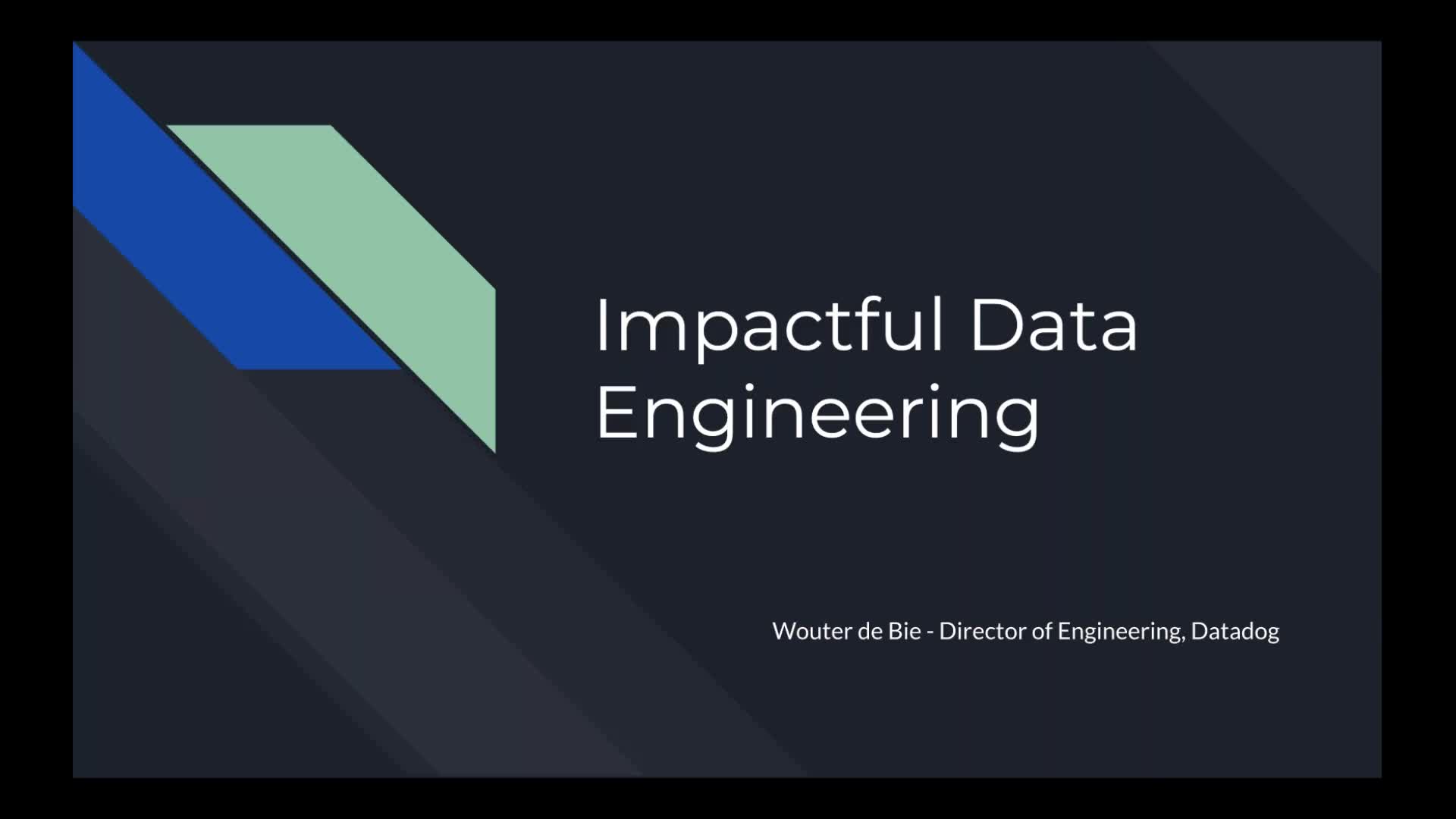Direkt zum InhaltWeitere Informationen





Lautsprecher

Wouter de Bie
Director of Engineering @ Datadog
Trainierst du 2 oder mehr?
Erhalten Sie für Ihr Team Zugriff auf die vollständige DataCamp-Bibliothek mit zentralisierten Berichten, Zuweisungen, Projekten und mehrVerwandt
white paper
Insights from Data Leaders
Distilled insights on data transformation from data science thought leaderswebinar
Storytelling for more impactful data science
Storytelling enables data teams to formulate impactful aspects of their work.webinar
Driving Impact with Data Storytelling
Eight best practices you can adopt right now to become a better data storytellerwebinar
Data Storytelling: The Secret to Delivering Business Impact
Data Storytelling: The Secret to Delivering Business Impact with Analyticswebinar
Data Skills to Future-Proof Your Organization
Discover how to develop data skills at scale across your organization.webinar
Democratizing Data Science at Your Company
Data science isn't just for data scientists. It's for everyone at your company.Join 5000+ companies and 80% of the Fortune 1000 who use DataCamp to upskill their teams.
Loved by thousands of companies
